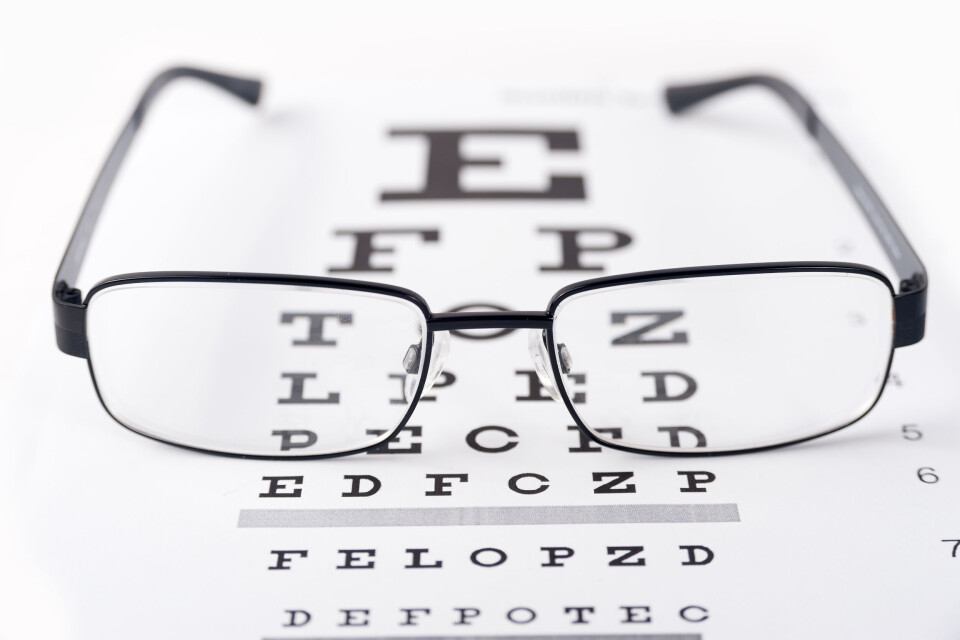-
15 things you can do at a French pharmacy other than buy aspirin
We look at the services, treatments and advice offered by local pharmacists in France
-
France puts forward 18 plans to simplify life for disabled people
The measures aim to streamline administrative procedures and reduce delays
-
French officials order the destruction of a house in Perpignan
The villa was constructed over ten years ago
What is changing in relation to glasses prescriptions in France
People will no longer necessarily need to see an ophthalmologist if they meet certain conditions. We explain

More eye specialists will be able to prescribe glasses and contact lenses in France, as the role is opened to orthoptists as well as ophthalmologists under certain conditions, in a bid to ease waiting times.
In general, orthoptists specialise in non-surgical treatment of eye conditions, while ophthalmologists are fully-qualified medical doctors who specialise in eyes. The latter can prescribe more treatments and even perform surgery if needed.
People aged 16-42, without contraindicated conditions, can now go voluntarily to an orthoptist to have an eye test and receive an updated prescription for glasses and contact lenses to correct poor sight, including the common conditions of myopia and astigmatism.
The new rules came into force on February 2 this year, in a decree published in the Journal Officiel.
They do not need a GP prescription or referral to do this.
Orthoptists can use these appointments to prescribe glasses, the Syndicat National Autonome des Orthoptistes (SNAO) said in an announcement.
👏👏👏👏 https://t.co/t3wU19JnuZ pic.twitter.com/OPx6gqEISJ
— Syndicat National Autonome des Orthoptistes (@OrthoptisteSNAO) January 31, 2023
Only people who have never been seen by a doctor or ophthalmologist for eye problems, and who do not have any other serious conditions (such as diabetes, hypertension, cancer, previous eye trauma, glaucoma, ocular tumours…), can go to an orthoptist for glasses.
The full list of contraindicated conditions can be seen here.
To be eligible, people must also:
- Glasses: Have been prescribed with their most recent glasses prescription by an ophthalmologist within the past five years
- Contact lenses: Have been prescribed with their most recent contact lenses prescription by an ophthalmologist within the past three years.
These rules are specified on the government website here.
Mélanie Ordines, an orthoptist in Marseille and president of the SNAO, told FranceBleu that the move was positive. She said: "This will allow us to relieve our ophthalmic colleagues [of needless work]. We have worked with them for over 20 years in their offices and they trust us.
“This will improve access to care for people in France, particularly in ‘medical deserts’ [areas in France that lack doctors and other medical specialists].”
Read more: How can I find out which parts of France are lacking doctors?
Orthoptists are not medical doctors. They typically help with eye rehabilitation, but may also work in an ophthalmology practice to carry out visual assessments.
The change aims to:
- Reduce waiting times for glasses and contacts prescriptions
- Free up time for ophthalmologists, so they can see patients with more complex needs
- Make visual care more accessible.
But Thierry Bour, president of the French ophthalmologists' union, said that the move should be welcomed with caution.
He said: “A drop in vision can hide many things. Orthoptists are paramedics who have only a three-year degree. They do not know all the [possible] pathologies. For the patient, there may be a loss of opportunity [to be seen by a full doctor].”
The rules had been due to change in 2021, but the change was delayed until now.
Read more: Glasses prescriptions to be given without ophthalmologist in France
In France, people have typically needed to see an ophthalmologist, sometimes in a hospital, to receive a full sight test and be prescribed glasses or contact lenses.
This can lead to delays and difficulty in obtaining an appointment but patients do have the benefit of being seen by a fully-qualified medical doctor. You can only choose your frames or contact lenses at an opticians once you have this separate prescription.
Read more: How do I book an eye appointment in France?
This is not the same as in many other countries.
For example, in the UK, eye tests for glasses and contact lenses are carried out by an optometrist who works at a high street optician store. You do not see a doctor unless you have (or are suspected to have) a serious eye condition or injury. You are given your prescription and choose frames in the same place.
Different eye specialists in France: A quick definition
- Ophthalmologist - A fully-qualified medical doctor that specialises in eyes. Usually works at a hospital and can treat eye conditions, injury, and eye conditions. Can prescribe and do surgery.
- Orthoptist - Works closely with ophthalmologists. Highly qualified. Investigates issues with vision, and conditions such as double vision, cataracts, squint, or glaucoma.
- Optometrist - Also known as an ophthalmic optician. Not a fully-qualified doctor, but highly qualified at examining the eyes. Can diagnose sight problems like myopia.
- Optician - A dispensing optician helps you choose frames. A manufacturing optician makes lenses fit the frames in a factory. An ophthalmic optician (also called an optometrist) can test eyes for simple conditions, like short-sightedness.
Related articles
How long are medicine prescriptions valid in France?
Does France’s ‘100% Santé’ scheme cover glasses without a mutuelle?
Is an ophthalmologist’s prescription vital for glasses reimbursement?
























